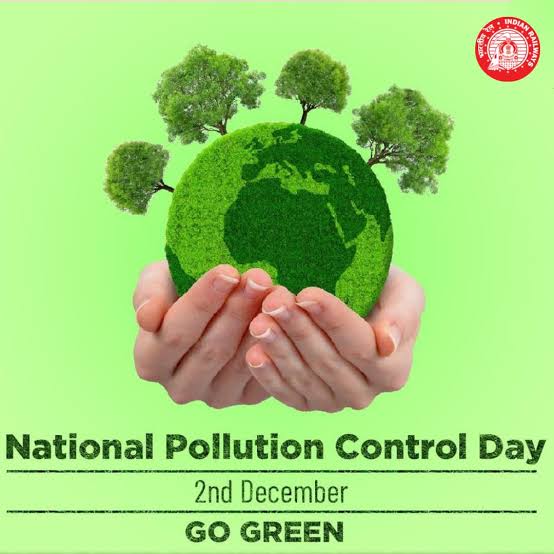National Pollution Control Day : A Call to Action for a Cleaner Tomorrow

Every year on December 2nd, National Pollution Control Day is observed in India to commemorate the tragic events of the Bhopal Gas Tragedy in 1984. This day serves as a stark reminder of the devastating consequences of unchecked industrial pollution and underscores the need for stringent measures to control and prevent pollution.
The Bhopal Gas Tragedy, one of the world's worst industrial disasters, occurred when a pesticide plant leaked toxic gas, leading to the loss of thousands of lives and causing long-term health issues for many more. In the aftermath of this tragedy, it became imperative for the government and society to address the pressing issue of pollution and its far-reaching effects on human health and the environment.
National Pollution Control Day aims to raise awareness about the importance of controlling pollution and emphasizes the role that individuals, industries, and the government play in preserving the environment. The day serves as a catalyst for discussions on pollution control policies, sustainable practices, and the adoption of technologies that minimize the impact of human activities on the ecosystem.
Key Objectives of National Pollution Control Day :
1. Education and Awareness : The day is an opportunity to educate people about the different types of pollution, their sources, and the adverse effects on health and the environment. Awareness campaigns are conducted to inform citizens about the steps they can take to reduce their carbon footprint.
2. Policy Advocacy : National Pollution Control Day serves as a platform for policymakers to review and strengthen existing pollution control laws. It encourages the formulation of new policies and regulations that promote cleaner production processes and environmentally friendly practices.
3. Industry Accountability : Industries are major contributors to pollution, and this day encourages them to adopt sustainable and eco-friendly technologies. It fosters a sense of responsibility among industries to minimize their emissions and discharge of pollutants.
4. Community Participation : Local communities play a crucial role in pollution control. The day encourages community involvement in cleanliness drives, tree planting initiatives, and other activities that contribute to a cleaner and healthier environment.

Individual Responsibility in Pollution Control :
While government policies and industrial practices are pivotal in pollution control, individual actions also play a significant role. National Pollution Control Day encourages citizens to :
1. Reduce, Reuse, and Recycle : Adopting a sustainable lifestyle by reducing waste, reusing materials, and recycling helps minimize the environmental impact.
2. Conservation of Resources : Efficient use of energy and water resources contributes to pollution reduction. Simple actions like turning off lights and appliances when not in use can make a difference.
3. Green Transportation : Opting for public transportation, carpooling, or using eco-friendly modes of transport helps in reducing air pollution.
4. Tree Plantation : Trees act as natural filters, absorbing pollutants and releasing oxygen. Participating in tree planting initiatives contributes to a healthier environment.

National Pollution Control Day is a call to action for individuals, industries, and governments to collectively work towards a cleaner and sustainable future. By understanding the importance of pollution control and taking proactive steps, we can ensure that the mistakes of the past are not repeated, and the well-being of the planet and its inhabitants is safeguarded for generations to come.
If u want more informative content pls like and follow and comment your opinions
Happy Questing
Rohit Sharma
Please sign in
Login and share






















